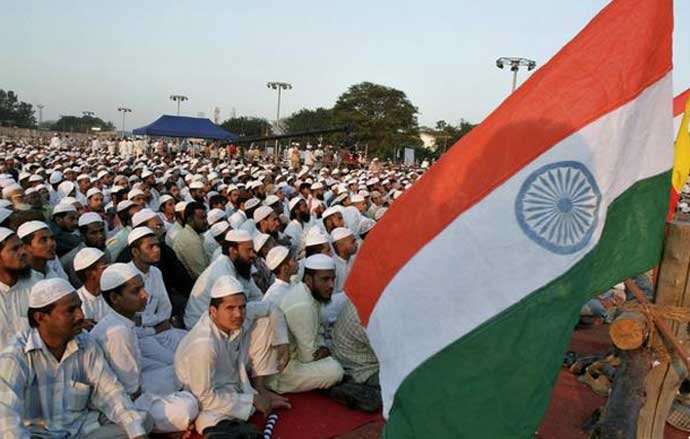Team Clarion
NEW DELHI – Jamaat-e-Islami Hind’s Markazi Taleemi Board (MTB) director Syed Tanveer Ahmed has termed ignoring minorities, who are 21% of the Indian population in the Union budget as a disservice to the Constitutional ideals.
MTB in collaboration with the Institute of Policy Studies and Advocacy (IPSA), New Delhi, All India Education Movement (AIEM), New Delhi and Centre for Education Research and Training (CERT), New Delhi organized an online Post-Budget Consultation to deliberate on the social sector spending of the Union Budget 2023-24, exclusively focusing on the education and minorities.
Chairing the online post-budget consultation, Mr.Tanveer has recalled the goals of the Constitution of India which are to promote socialism, equitable growth, establish a humane economic structure, for reducing the gap between ‘have and have nots’, and work for the welfare of deprived communities. He anticipated that the Union Budget could play a vital role to achieve those goals, and the consultation was not organized only for the sake of analysis but to further take the concerns raised in the meeting to the next level.” Advocating the need for monitoring the current budget, he noted that MTB along with IPSA are working on the agendas of creating awareness among the citizens about the government budget, both central and states, financial literacy, advocacy etc.
The meeting was moderated by Dr Abdul Rasheed Agwan, President of IPSA. Prof Asheref Illiyan, Head, Department of Economics, Jamia Millia Islamia, economist Dr Jawed Alam Khan, Professor Khwaja Shahid President of AIEM, a PhD scholar from JNU Mr Dawa Sherpa and Mr Roshan Mohiddin Director of CERT addressed the meeting, which was chaired by Mr Syed Tanveer Ahmed, Director of MTB.
Delivering the inaugural speech, Dr Abdul Rasheed Agwan has pointed out that there is an overall decline in the budget of flagship education schemes of around 13% from the previous budget and the minority budget has been reduced by around 38%. Calling the Health and the Education key social sectors, Dr Abdul Rasheed Agwan stressed to focus on allocating the quality budget for these two sectors. He expressed the concern that India’s spending on the above-mentioned sectors was lower than the developing and developed economies.
Noting that the current Union Budget needs to be looked at in the context of global recession, unemployment, laying off of IT employees, the overall grim future of the world and domestic economies with a high rate of inflation, unemployment, growing inequality in India etc, Prof Illiyan acknowledged various positive initiatives in the agriculture, health and education sectors. However, Prof Illiyan too voiced concern over cutting budgetary allocation for various central flagship programmes.
Dr Jawed maintained that increasing capital expenditure is appreciable but it should not be happening at the cost of social sector budgeting. Dr Jawed said, “currently, the country is facing low consumption demand, high inflation, unemployment and growing inequality. In this context, there is a need to spend more on major flagship programs such as ICDS, the Mid-Day meals scheme, the Samagra Shiksha Abhiyan, and other schemes of the Social Justice Ministry and the Ministry of Minority Affairs, etc.”
Highlighting two major aspects of the budget – capital investment and Digital India, Prof. Khwaja said, “there is an 11% increase in the education budget and there is also expenditure on Skill India. But, he expressed disappointment over some aspects including on GDP expenditure on education and drastically slashing the budgets of various major central schemes including teachers’ training, Padhna Likhna Abhiyan, Adult education, literacy schemes, exemplary schools, the National Scheme for Tribal Girls, the mid-day meal scheme etc.
Prof. Khwaja also expressed the need for a discussion on the flagship schemes of the Ministry of Minority Affairs (MoMA) and a mechanism to make the delivery system of the schemes of MoMA more efficient. He also appealed that the concern on the MoMA budget should not be reduced to a ‘Muslim Issue’.
Mr Dawa Sherpa raised the question of accessibility and attempted to examine the budget in that regard. He said, “there is a hierarchy even within the education system and the budgetary allocations, because only 21% of enrollment in higher education happens in government institutions, and out of this, 50% of funds earmarked for higher education goes to 2% of institutions where only 2% students are enrolled, like the IITs and IIMs.”
Mr Roshan expressed his concerns about zero funding for UPSC, SSE, and State Public Service Commission training and coaching carried out by MoMA. He raised the question of where “sabka saath sabka vikas” was in the budget.

